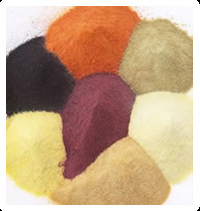Stone Root Purchase & Information

Alternative Names
Baume de Cheval, Citronella, Colinsonia, Collinsonia, Collinsonia Canadense, Collinsonie, Collinsonie du Canada, Guérit-Tout, Hardback, Hardhack, Heal-all, Horse Balm, Horseweed, Knob Grass, Knob Root, Knobweed, Racine de Pierre, Richleaf, Rich Weed, Stoneroot CAUTION: Please refer to separate listings for Citronella Oil, Lemongrass
Scientific Name
Collisonia canadiensis
Why Do People Use Stone Root?
The oral preparations of Collinsonia Canadensis (Stone root), like stone root powder can be used for treatment of bladder inflammation, gastrointestinal disorders, edema, headaches issues, indigestion, hyperuricuria, urea "bladder semolina", kidney stones, water retention, urinary calculus and as a tonic.
Is It Safe To Use?
Possibly Safe - Orally and appropriately used stone root is thought to be safe. No severe side effects are reported due to both type of uses.
Avoid During Pregnancy & Lactation - Pregnant and breastfeeding females should avoid the use of Collinsonia Canadensis.
How Effective Is Stone Root?
Not known.
How Stone Root Works?
The most effective parts of Collinsonia Canadensis are its root and rhizome. Its root rhizome consist of caffeic acid, volatile oil derivatives including saponins, rosmaric acid, mucilage, tannin and resin. Constituents in volatile oil are germacrene D, caryophyllene, alpha- and beta-pinenes. Although no pharmacologic confirmation are documented that stone root may have diuretic impacts, cause sweating, stimulate stomach function and help rid the body of stones and lessen the rate occurrence of urinary stones.
What Are The Side Effects /Adverse Reactions of Stone Root?
Oral use of stone root powder may lead to colic-like pain, intestinal tract irritation, nausea issue, dizziness and painful urination.
How Stone Root Interacts With Other Herbs and Supplements?
Diuretic Herbs - Combination of stone root powder with other diuretic herbs may result in various side effects and additive pharmacological effects as well. Herbs in this category include artichoke, agrimony, burdock, buchu, corn silk, celery, squill, guaiac wood, yarrow, uva ursi and some others.
How Stone Root Interacts With Drugs?
Not known.
How Stone Root Interacts With Foods?
Not known.
How Stone Root Interacts With Lab Tests?
Not known.
How Stone Root Interacts With Diseases and Conditions?
Not known.
What Should Be the Dose/Administration of Stone Root?
ORAL Normal dosage of stone root, taken as tea or as dried root, is between1 to 4 grams every day. Preparation of tea is by mixing 1-4 grams rhizome or root part in 150 mL of boiling water for 5-10 minutes and then straining.
As water extract (with ratio 1:1 in 25% alcohol) 1-4 mL is used thrice every day.
Tincture form of stone root (with ratio 1:5 in 40% concentrated alcohol) should be ingested 2-8 mL thrice every day and Collinsonia tincture should be taken in a dose of 2-8 mL.
Comments
This aromatic herb has an unpleasant and pungent smell that is reported to be numbing in large amounts.
General Certificate of Analysis (COA)
Specification sheet links below are a standard copy of the COA less the batch or lot number and manufactures dates. Specification sheet can be dated and should only be considered as a general information. Please contact and request an up to date COA if needed for specific updated information before placing order by filling out the contact form with product name and SKU number. If ordering quantities of twenty five kilos or more contact for availability.
